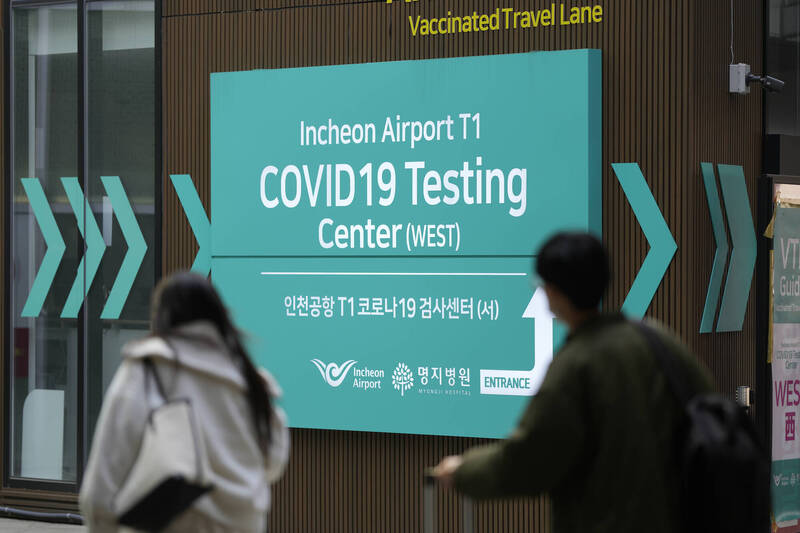The South Korean government announced today that from Saturday (11) Chinese passengers will cancel the obligation to provide pre-departure Wuhan pneumonia (new coronavirus disease, COVID-19) screening and quarantine information input system (Q-CODE), and all entry epidemic prevention measures will be lifted .
The picture shows Seoul Incheon Airport.
(Associated Press)
[Instant News/Comprehensive Report] As the Wuhan pneumonia (new coronavirus disease, COVID-19) epidemic slows down, the South Korean government recently announced that the landing screening for passengers from China will be canceled from the 1st, and only at Seoul Incheon International Airport Landing restrictions, announced today, from Saturday (11) passengers from China are not required to provide pre-departure Wuhan pneumonia (new coronavirus disease, COVID-19) screening and quarantine information input system (Q-CODE) obligations, entry All anti-epidemic measures have been cancelled.
According to Yonhap News Agency, South Korea's Central Disaster Safety Countermeasures Headquarters stated that the observation of the epidemic situation in China remained stable after the Spring Festival, and the results of domestic and foreign genetic sequencing of confirmed cases in China showed no mutation of the virus strain. Therefore, the South Korean government decided today that starting from the 11th, it is not necessary to provide pre-departure screening and fill in the quarantine information input system (Q-CODE) for passengers from China.
Please read on...
It is reported that the South Korean government announced on the 28th of last month that it will cancel the landing screening obligation for Chinese passengers from March 1st, and unify the epidemic prevention restrictions that can only land at Seoul Incheon International Airport. At that time, only the pre-departure screening and Q-CODE filling obligations were retained. .
According to the report, the Department of Disease Management has been monitoring, responding to and formulating plans to control large-scale epidemics for a long time in the past three years. It will publish a mid-to-long-term plan for possible new infectious diseases in May. Lin Shuying, head of the general group of the Countermeasures Headquarters In response, the interval between the occurrence of new infectious diseases is shortening day by day, and the scale of the epidemic may gradually expand, so it is very important to strengthen the monitoring system.
Related news please see:
Please click here for "Wuhan Pneumonia Zone", for more information, you can grasp it first-hand.
